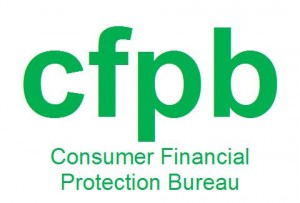 The Consumer Federal Protection Bureau’s decision to regulate credit agencies is a significant step to protect consumers. Until now, there was no central entity in the federal government to oversee the major credit reporting agencies. The credit market affects just about every American family through car loans, mortgage applications, and more minor lines of credit, yet reporting system is flawed. For the average person, appealing a simple mistake on a credit report can be a long, onerous process.
The Consumer Federal Protection Bureau’s decision to regulate credit agencies is a significant step to protect consumers. Until now, there was no central entity in the federal government to oversee the major credit reporting agencies. The credit market affects just about every American family through car loans, mortgage applications, and more minor lines of credit, yet reporting system is flawed. For the average person, appealing a simple mistake on a credit report can be a long, onerous process.
The name Agency in Credit Reporting Agency almost connotes a sense of authority. It may even lend the impression to consumers that these credit agencies are quasi-governmental agencies, or that they are at least important enough to be regulated by the government. After all, an “agency” sounds pretty important and official. Surely, these “agencies” are accountable to consumers, aren’t they?
 The truth is credit agencies are businesses. As consumer expert Clark Howard explained in an interview, we, the consumers, “are not [even] the customers.” Banks, credit card companies, and even potential employers are the ones who pay for our credit reports. They are the customers.
The truth is credit agencies are businesses. As consumer expert Clark Howard explained in an interview, we, the consumers, “are not [even] the customers.” Banks, credit card companies, and even potential employers are the ones who pay for our credit reports. They are the customers.
As a result, a consumer’s satisfaction with the accuracy of their credit reports is not one of the credit reporting agency’s primary concerns. As Clark Howard explains, credit agencies simply “slice and dice our credit information. Their only real objective is to package and sell, without an interest in [ensuring] that the information is wholly accurate.”
Also as a result, reporting errors are common and credit agencies have a poor track record of correcting those errors. According to a study by the U.S. Public Interest Research Group, 79 percent of credit reports contained an error of some kind. An alarming one-quarter of reports contained errors serious enough to result in denial of credit.
Even worse, as the Public Interest Research Group recently noted, credit agencies make it nearly impossible for consumers to fix those errors — after all, we’re not their customers and the accuracy of our credit reports is their primary interest. As a necessity, consumer advocates promote best practices where people must send disputes to both the agencies and lenders via certified mail. At the end of a long process, consumers may even have to file a lawsuit to see results.
There is nothing wrong with credit agencies making a profit. They are private businesses. Yet without adequate oversight, these agencies have little incentive to ensure the accuracy of consumer credit reports. In this sluggish economy, it is lost on almost nobody how seemingly small errors on a credit score can make the difference between loan approvals and denials, as well as favorable interest rates. Given the enormous influence these agencies have on the lives of American consumers, this action is long overdue.









Leave a Reply